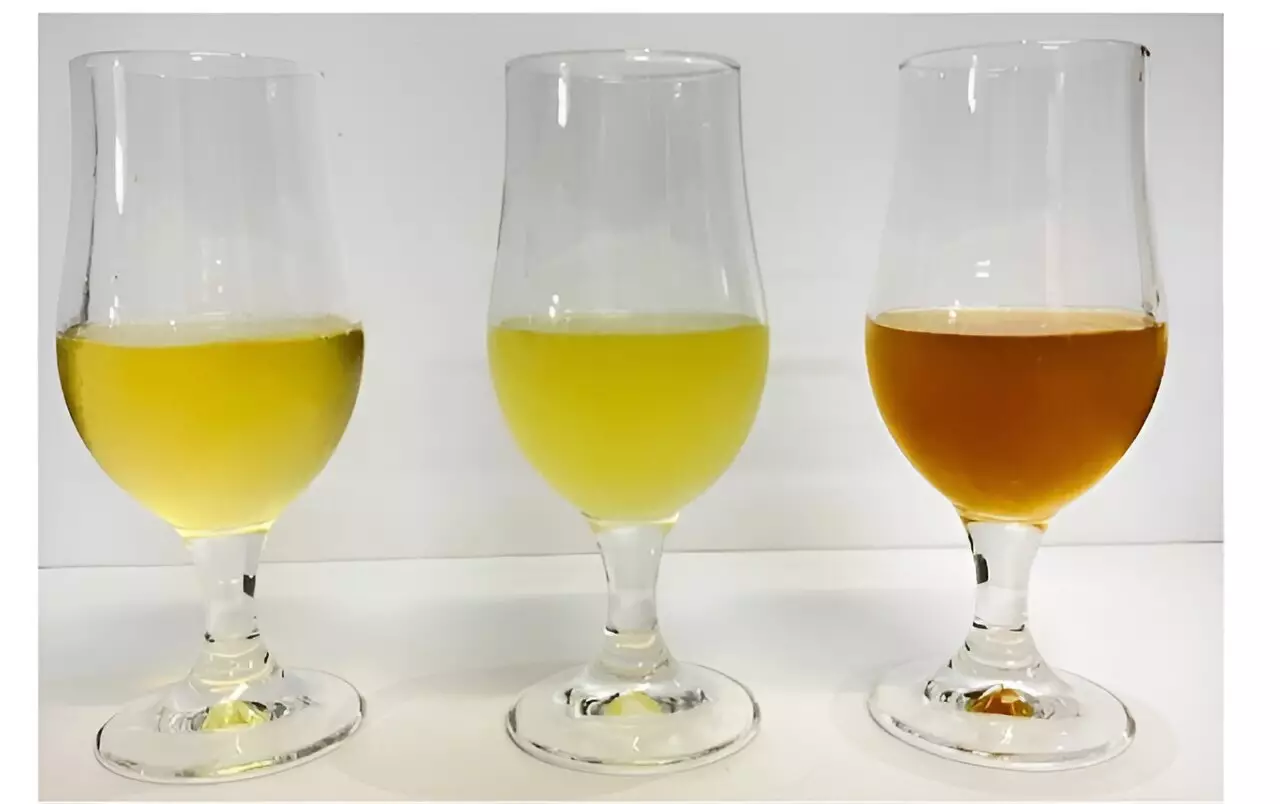Kombucha, once a trendy beverage celebrated for its unique effervescence and tangy flavor, has roots steeped in centuries of fermentation tradition. Typically produced by fermenting sweetened tea with a SCOBY (symbiotic culture of bacteria and yeast), this fizzy drink has garnered a cult following due to its purported health benefits. However, as consumer interest evolves towards diversity in flavors and nutritional profiles, brewers are delving into uncharted territory by experimenting with fermented fruit-based beverages. This shift not only reflects a growing appetite for variety but also encourages innovative solutions to enhance health benefits.
Recent research published in ACS Agricultural Science & Technology brings valuable insights into this experimental brewing landscape. Researchers, led by Socorro Vanesca and Frota Gaban, sought to investigate whether fruit juices, particularly apple and passion fruit, could serve as robust alternatives to traditional tea-based kombucha. In a meticulously crafted study, the team fermented these juices alongside tea over a period of ten days, analyzing the biochemical properties of the resulting beverages.
What stood out was the remarkable flavonoid content in the apple infusion, outpacing not only the kombucha but also the passion fruit drink. These bioactive compounds are increasingly recognized for their potential health benefits, including antioxidant and anti-inflammatory properties. Moreover, both the apple beverage and kombucha boasted higher phenolic compound levels than the passion fruit variant, suggesting that fruit-based ferments could be just as nutritious, if not more so, than their tea-based counterpart.
Taste testers played a pivotal role in this exploration, providing subjective evaluations of the color, aroma, and flavor of each beverage. While the kombucha presented with its characteristic golden hue, the apple drink attracted attention for its appealing amber color, and the passion fruit drink was noted for its vibrant, yellow tone. Interestingly, the fruit-infused drinks were perceived as having more robust and fruity aromas than the relatively subtle scent of tea. However, the taste outcomes were fascinatingly nuanced: While the apple and tea drinks emerged as favorites due to their sweetness, the passion fruit drink’s bitterness might limit its widespread acceptance.
This evaluation underscores the importance of palatability alongside nutritional value when exploring new beverage options. The sweeter profile of apple-based kombucha could cater to a broader audience, enhancing its attractiveness as a potential substitute for health-conscious consumers seeking flavorful yet nutritious alternatives.
The promising findings from this study not only suggest that fermented apple juice can stand as a viable kombucha alternative but also open avenues for further exploration into other fruit-based ferments. With suggestions of unique flavors and enhanced health benefits, there’s a growing anticipation around what future research may unveil. As more producers experiment with diverse ingredients, the world of fermented beverages is likely to expand significantly, appealing to both health enthusiasts and those seeking novel taste experiences.
The landscape of fermented drinks is shifting, and fruits like apples and passion fruits are at the forefront of this evolution. The promise of enhanced flavors and nutritional benefits from these innovative brews may one day redefine the kombucha experience.



Leave a Reply